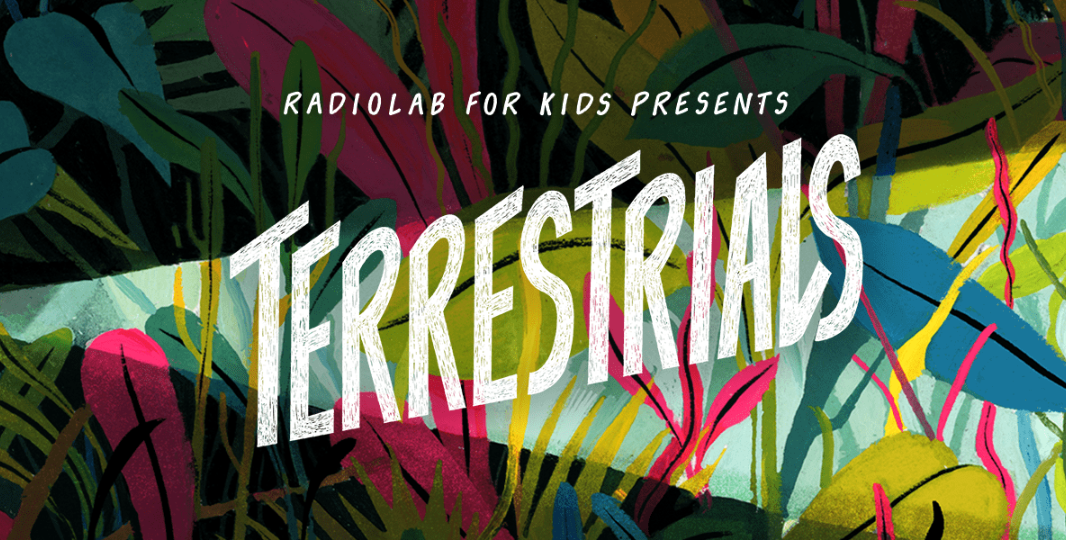In the United States, podcast consumption by younger audiences is increasingly common. Approximately 48% of children aged 3-12 listen to podcasts weekly and 67% listen at least monthly. Yet only 2.7% of podcasts produced are aimed at the “Kids & Family” market.
To address this content gap, AVDF recently launched an effort to support the production and distribution of more educational podcast content in partnership with public media. In doing so, AVDF continues its long history of working with public media to educate America’s kids. In a recent post, AVDF President Michael Murray wrote:
“For decades, PBS has served as a national classroom, a role it fulfills with intention and rigor. While some dismiss PBS as just another entertainment provider in a crowded media landscape, this misunderstands its mission. PBS Kids isn’t producing content just to entertain children—it’s teaching them. And unlike the noisy and often chaotic content flooding YouTube and streaming platforms, PBS Kids’ programming is grounded in decades of careful educational and psychological research.”
The Terrestrials Project
As part of this effort, AVDF awarded New York Public Radio (NYPR) a $100,000 one-year grant in 2023 to produce and distribute the second season of Terrestrials, a children’s science and nature podcast from Radiolab. Aimed primarily at listeners aged 8–11, Terrestrials blends entertainment with educational rigor, presenting stories about often-overlooked organisms and natural phenomena.
Season 2 premiered in fall 2024, building on the momentum of the pilot season—also supported by AVDF—that launched in 2022. In the second season, the series maintained NYPR’s high production standards while expanding cross-platform strategies for science education, audience engagement, and educator outreach.
“Educational podcasts like Terrestrials prove that children’s media can be both joyful and informative,” said Miica Patterson, AVDF Associate Director of Communications and Board Relations. “When we combine storytelling, science, and music in ways that meet children where they are—whether that’s in the classroom, at home, or on the go—we strengthen the ecosystem of public media and inspire a culture of curiosity and learning.”
Educational Content and Impact
Across seven episodes—including one bonus episode—Season 2 explored themes that connect scientific discovery to human life. For example:
- The Snowball: Extreme Squirrels in the Arctic examined Arctic squirrels’ remarkable survival strategies, with potential applications for Alzheimer’s research and space exploration.
- The Sea Troll: An Everlasting Shark investigated the Greenland shark’s longevity to deepen understanding of aging.
- An Ocean in Space celebrated NASA’s Europa Clipper launch and featured U.S. Poet Laureate Ada Limón.
Each episode, hosted by Peabody Award winning science journalist Lulu Miller, integrates original music, storytelling, and listener participation through “Badgers”—a segment where children submit questions on the episode’s theme. Season 2 received over 200 listener submissions via email, social media, and educator partnerships, illustrating strong engagement across home and classroom settings.
Supplemental educational resources expanded the learning experience beyond audio. An episode on the Arctic squirrel was accompanied by a live-action video, while an episode focused on lichens included a music video by musician Laura Jane Grace. These materials, distributed via Radiolab’s YouTube channel, social media platforms, and a dedicated newsletter, provided educators and families with adaptable tools for both formal and informal learning.
Partnerships and Classroom Integration
NYPR expanded the podcast’s educational reach through partnerships with WNET and PBS LearningMedia, which integrate episodes into classroom-ready curriculum. Additional collaborations with platforms like Listenwise, and professional networks such as the National PTA and the American Association of School Administrators, are in development.
Cross-promotions with cultural organizations—including the American Museum of Natural History, Brooklyn Children’s Museum, and WBUR—extend Terrestrials into live learning environments through interactive events, museum programs, and science festivals. These activities foster multi-sensory engagement and strengthen community connections between public media, educational institutions, and families.
Audience Reach and Recognition
Season two’s first episode, The Stumpisode, achieved 653,000 downloads when distributed via the main Radiolab feed, and aired to over one million weekly radio listeners. The podcast’s visibility increased through coverage on NPR’s Morning Edition and All Things Considered, along with recognition from The New York Times and iHeartRadio as one of the best podcasts for children.
Strategic Expansion and Future Plans
In May 2025, AVDF awarded NYPR a $200,000 grant to support a two-year expansion of Terrestrials, enabling the production of six new seasons (36 episodes) and 14 bonus episodes between 2025 and 2027. To further engage audiences, the team will launch dedicated social media channels and explore a membership program offering exclusive educational content. A structured evaluation process, including audience surveys with children, educators, and families, will inform ongoing refinements in content and delivery to ensure the series remains relevant, engaging, and educational.
Terrestrials exemplifies how high-quality children’s podcasts can combine entertainment with robust educational value, bridging the gap between family engagement and classroom learning. Its integration into schools, museums, and community events underscores its adaptability as both a media product and an educational resource.
Back to all Stories

